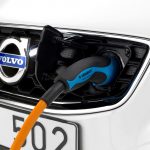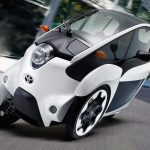Driverless Cars are Go – Implications of Social Media
March 23, 2015
 Never have enough time to get through everything you want to on your Facebook feed? Soon that will be a problem of the past, since you’ll be able to browse to your heart’s content while you enjoy your drive to work, during a cross-country drive to see your grandparents, or en route to do some serious shopping in town.
Never have enough time to get through everything you want to on your Facebook feed? Soon that will be a problem of the past, since you’ll be able to browse to your heart’s content while you enjoy your drive to work, during a cross-country drive to see your grandparents, or en route to do some serious shopping in town.
I’m not talking about hiring a chauffeur, although that would be nice. There’s something much more interesting, impactful, and life-changing afoot, which will make the world a much different place than what we now know. In all likelihood, it will have the same type of impact that the internet has had on the world.
Of course I’m talking about self-driving cars.
A Tale of Two Countries
Autonomous cars are being developed around the world right now, and estimations are that they will be a reality within the next decade. Japan has tested them, as has Sweden. In China, tech and internet giants like Baidu are getting in on the act, mimicking their Western counterpart Google.
Which brings us to the US. Google’s fleet of self-driving cars have been happily zooming across the landscape of California for more than a year now. More importantly, they’ve clocked well over 700,000 miles, with only one minor incident which, ironically, involved a human driver being in control. In the States, of course, the focus is on full-sized vehicles which can navigate roads and adjust for changing conditions in traffic across the country.
 Across the pond in Britain, driverless cars will hit the roads within months in Milton Keynes. These are not full-size sedans, but rather what are being called ‘pods’. The pods are essentially small taxi-like transports. They aren’t designed to necessarily be bought and kept like traditional cars so much as they are meant to be on-demand transports that can be ordered from your smartphone and will be waiting for you when you are ready to go somewhere.
Across the pond in Britain, driverless cars will hit the roads within months in Milton Keynes. These are not full-size sedans, but rather what are being called ‘pods’. The pods are essentially small taxi-like transports. They aren’t designed to necessarily be bought and kept like traditional cars so much as they are meant to be on-demand transports that can be ordered from your smartphone and will be waiting for you when you are ready to go somewhere.
For instance, a train passenger arriving at Milton Keynes could have their pod waiting at the station for them, having ordered it on the way into the town. Once they’ve been delivered to their destination, the pod would return to it’s base to await another order.
A World-Changer
 This automotive revolution will be much more world-changing than most people realize. Of course there are the standard thoughts and concerns – less traffic accidents, less congested roadways, less fossil fuel use, etc. But the implications are much more far-reaching. Frankly, it’s the next best thing to teleportation (which I’m still waiting for personally).
This automotive revolution will be much more world-changing than most people realize. Of course there are the standard thoughts and concerns – less traffic accidents, less congested roadways, less fossil fuel use, etc. But the implications are much more far-reaching. Frankly, it’s the next best thing to teleportation (which I’m still waiting for personally).
A single family which now keeps two or three vehicles at the home – mom’s, dad’s, and teenage child’s – could conceivably have only one. It would take one family member to their destination, pick the next up somewhere else, and so on throughout the day. No need for mom to run taxi services for everyone anymore. Ten or twenty pods in a small third-world area could vastly improve the economic and productivity situation there on many levels.
Of course there are downsides. The transportation industry would (will) be turned on it’s head, for instance. Yet the positives far outweigh the negatives. And they’d better, since it’s all but inevitable that this is what our world will look like in a few years (or a few months in Milton Keynes).
The Social Side of Travel
Instead of playing I-spy along the highway on a family trip, the entire family could just as easily be playing a board game. Or sleeping. Or reading a book (an e-book, of course). Or working. And there’s another aspect – imagine the increased productivity or workers when travel time can be used as work time.

But we can’t forget the players involved in this game. Of course there are the car companies like NIssan and Volvo, just to name two, but the big drivers are coming from Google, and Baidu, even Apple possibly, and of course Uber. That infers far more than making travel better. It means incorporating travel into the rest of our digital and social lives. All I ask is that Mark Zuckerberg not end up at the forefront of all this. Please God, don’t ever let me travel in a Facebook car. It’s just too much.
So in much the same way that our smartphone apps or a social media dashboard make posting and sharing things socially much easier today, these new autonomous cars (Powered by Google, now with twice the social!) will likely be equipped with the technology to share every aspect of every square foot we travel. It will certainly make geo-sharing and travel selfies much easier (but is it a selfie when the car takes the photo?).
Sound overwhelming, or too futuristic? Prepare yourself now, this future is not far off at all. In fact, it’s only a few years and a trip to Milton Keynes away.
Digital & Social Articles on Business 2 Community
(196)













